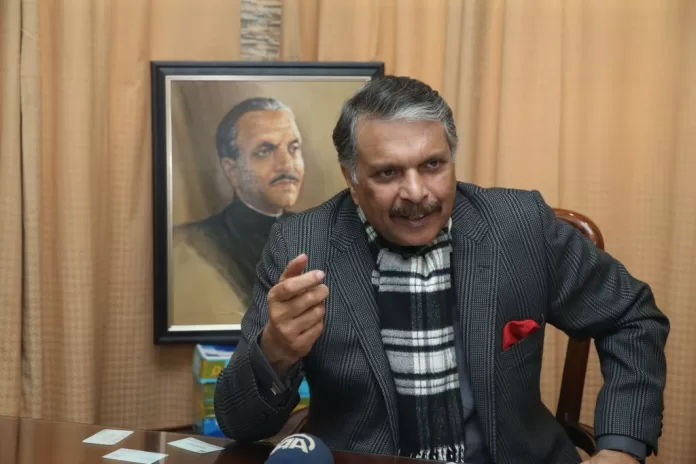The ongoing developments in the global and regional arena require careful attention from our policy makers on how to position Pakistan’s foreign policy and military strategy from a strategic positioning standpoint. These developments include the ongoing Israel-Palestine conflict in the Middle East, the recent Putin-Xi summit, the standoff with Afghanistan Taliban regime, upcoming SCO summit in Islamabad from 14 Oct to 16 Oct 2024 and the newly elected Iranian leadership. This challenging time is demanding that regional like-minded countries (Türkiye, Pakistan, Azerbaijan, and other Organization of Turkic states (OTS) countries to increase cooperation, not only economically but also strategically keeping in mind the regional geo politics. As we -know these countries have already tied in under ECO bloc.
The main objective of ECO was to develop necessary infrastructure and institutions among the member states to make full use of the available resources in the region and provide sustainable development. It should be kept in mind that Central Asia (Formerly Turkestan) was the region of the ‘Great Game’ between the British and Imperial Russia. This British-Russian competition was significant not only because of the hydrocarbon resources but also for the struggle for influence. Elaborating another historical fact of World War II, one of Germany’s central goals was to expand southeast into the Caucasus and Central Asia (Turkestan) to gain control of the vast farmland and natural energy resources.
However, having said that about main ECO functions, it needs to be stretched in terms of developing joint military industrial complex. Pakistan’s strategic location provides the shortest outlet to landlocked Central Asian Republics to the Arabian Sea, the Indian Ocean and further to the rest of the world. Pakistan acts as a bridge between South and West Asia for resources of the Middle East and South Asia. The Karakoram Highway is an ancient Silk Route between Afghanistan, Tajikistan, China and Pakistan and for having access to Gwadar port, this route provides the land link to Central Asian Republics through Tajikistan.
Pakistani ports which are around 1700 km away from Central Asian Republics are the shortest route for economic link between Pakistan and Central Asian Republics. It can give boost to bilateral trade in raw material and manufactured goods. It is to be said that Pakistan has to build cultural and economic ties with Central Asian Republics which will provide a natural strategic depth to Pakistan against the hegemony of India in South Asia. Pakistan has to play smart in such demanding circumstances due to challenges from India, terrorism from TTP and BLA using Afghan soil and CPEC related security matters that need to be accomplished as soon as possible. Some steps that must be taken in the short and long term by Pakistan, in order to be able to handle future challenges, are mentioned below.
First and foremost: Pakistan must be self-sufficient and self-reliant on defence related matters and must build the military equipment industry as the backbone of the country’s economy. We can plan/reform in long terms for other commercial sectors but due to challenges and shortness of time, it is imperative to boost the military equipment related economic plan (SIFC) for bridging the vast foreign exchange gap. A strong and prosperous Pakistan will definitely be able to play a bigger role as time arrives in the near or distant future.
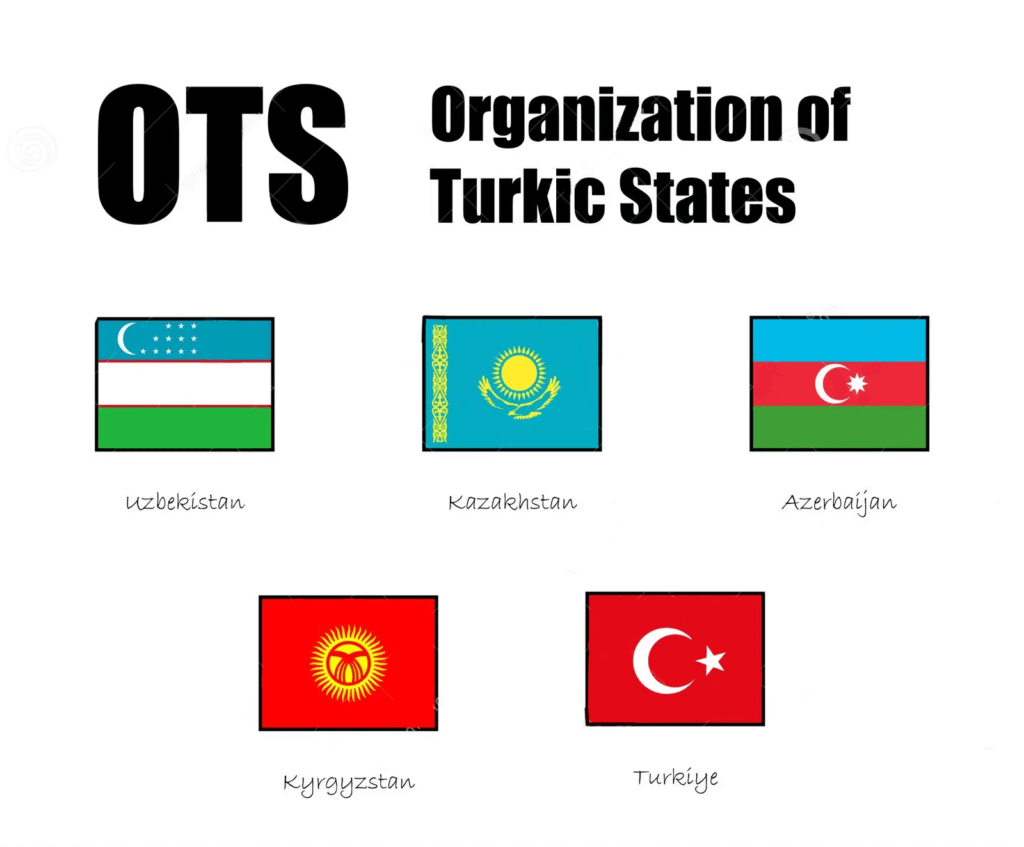
The second milestone: Build a strong regional Muslim led military bloc that could initially start from Pakistan, Turkey, Azerbaijan, and Organization of Turkic states OTS. Saudi Arabia and Qatar can be added in this bloc if the situation and tensions escalate as a result of Israel- Palestinian conflict. Keeping in mind stretch of this bloc, as per my view, the Area of Influence or dominion of Pakistan’s interest must be from Arabian Seas, Persian Gulf, Red Sea, Gulf of Aqaba, Mediterranean Sea, and the Black Sea. A few additional details are mentioned below.
The third milestone: Leveraging SCO and BRICS Membership & CPEC – Powerful Tools for Foreign policy manoeuvring.
Pakistan’s foreign policy was always influenced by western oriented thinking with strong interaction with NATO. Many historical examples can be given, like the Soviet intervention in Afghanistan but the incident after 9/11 and consequent events compelled Pakistan to rethink its global engagement as far as dealing with big powers is concerned. The opportunity came through the Gwadar port and CPEC that opened the doors for another power axis, that is China and Russia.
Moreover, Pakistan became a full SCO member recently that gives clear indication in the western bloc that Islamabad is responding to strategic paradigm shift due to consequence of war on terror and unilateral expansionism. This club has been the potential center for regional geopolitics as well as economic wellbeing under OBOR. Pakistan has the key status due to flag ship CPEC project. This bloc has the huge potential to extend the scope of CPEC to Central Asian States, the Caucasus and deep into Russia. If Iran is added, it could involve the Caspian potential. The challenge is to benefit from such a power bloc into our economic wellbeing and geo strategic gains for example like the Kashmir issue. The challenge here is how to maintain fair relations with NATO countries, especially the United States.
This enormous challenge requires an aggressive foreign policy and a very well-motivated foreign office staff. The successful calibre in foreign policy terms is to keep relations with both blocs but having predominant tilt towards the region. NATO and western countries have less economic stake in Pakistan other than expansionism.
On the other hand, China is there with full economic agenda. Pakistan must seek full membership of BRICS to respond further to regional and global paradigm shift and the best practice will be to use pros and cons of both rival blocs and use them in the interest of Pakistan. Also keep in mind that fair practices and standing on principles will be the ultimate strength in the diplomacy world.
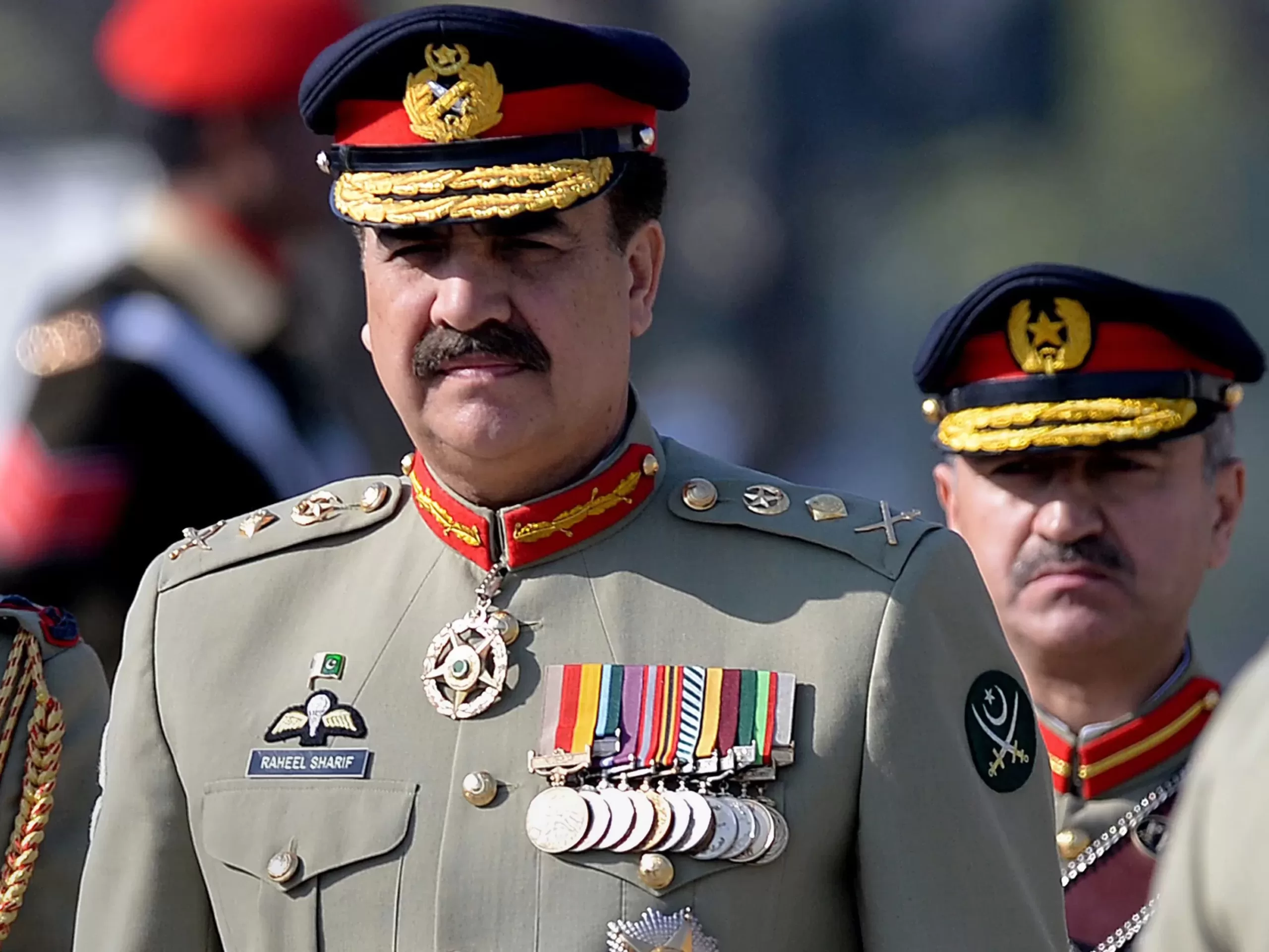
Pakistan’s Dominion of Influence (Land & High Seas)
The Islamic coalition military alliance has a joint operations center in Riyadh, Saudi Arabia. On 6 January 2017, Pakistan‘s former Chief of Army Staff, General (retd) Raheel Sharif was named the ICMA’s first Commander-in Chief. Pakistan can leverage this stature by asking for naval logistic support from countries that are part of this alliance, for instance, the UAE is utilizing Socotra Island as its naval logistic station and Pakistan can do the same. Only an aggressive and effective diplomacy along with strong resolve from our political and military establishment is required.
Emphasizing and repeating my words again, a country’s status and stature are reflected by its sea power, and without a strong navy, Pakistan cannot aspire to occupy its rightful place in the comity of nations. Sea power is not simply about what it takes to use the sea; it is also the capacity to influence the behavior of other people or things by what one does at or from the sea.
Leveraging from sea power requires two components: the means to use the sea as it desires, and freedom of doing things that are considered necessary to influence the actions of people on land. The classic constituents of sea power have not changed despite the rapid progression of technology and, when addressed, would eventually make Pakistan not only a naval power but a maritime power if naval role would be clarified and enough resources would be allocated.
The area of Pakistan’s dominion of interest is going through rapid navigational transformation and we see the presence of a large number of world navies in the Indian Ocean and the Arabian Sea. Dealing with such massive traffic adjacent to our extended Exclusive Economic Zone (EEZ) in addition to CPEC related interests, utmost attention and best planning is required for keeping very close eyes on adversaries’ ambitions and activities. Also, we can also observe a gradual build-up of Iranian and Saudi Navies in North Arabian Sea that could result in an additional pain point for Pakistan as far as diplomacy is concerned. All said, challenges along with new emerging Indian Coast Guard threat require Pakistan Navy adopt multi-pronged approach for an immediate increase in naval size by doubling the submarines and destroyers, acquiring a couple of helicopter carriers, dedicated airborne Early Warning Aircrafts, developing capability to use the Sea commercially in peacetime and command/control in war times, strengthening naval cooperation with Chinse and regional friendly navies and developing the Navy’s new role in combined operations with the army.
In modern naval warfare, the combined and enlarged role of long-range fighter aircrafts with refuelling capability and nuclear submarines could be a decisive factor for the sustainability of the operations in near and distant Seas. Pakistan must move quickly in the next 3 to 4 years to meet these challenges and evolve an ambitious political and naval leadership for the development of sea power that could plan the way in advance to transform Pakistan Navy into a Blue Water Navy in the near or distant future. Lastly, Pakistan has to diversify its coastal line ports for commercial and war management purposes. In this regard, Khor Kalmat lagoon is considered as the favourable location from a strategic standpoint. The addition of another naval base at Pakistan’s 1100 km long coastal line will help load management and diversification of the maritime resources for commercial and strategic purposes.
Pakistan – Turkey – Azerbaijan Strategic Alignment:
Pakistan must leverage Turkey and its influence as a vital and fundamental tool of its foreign policy. Turkish – Pakistan and Azerbaijan military and naval alliance and strategic partnership along with Organization of Turkic States countries can be a rock-solid element in multiple domains keeping in mind the Middle East and Central Asian geo-politics.
I am totally convinced that Turkey is one of the friendly countries that will come to support Pakistan in the times of need. Pakistan has many tools and maneuvers in all aspects, and alignment with Turkey should be another strategic maneuver that will be beneficial not only for both countries but also for regional stability. Turkey has influence on many countries and Pakistan can leverage such influence with close strategic and diplomatic alignment.
The joint Pakistan-Turkish Partnership will serve as a strong strategic power balancer for the Middle East and Indian Ocean Region (IOR). Elaborating further, Turkey has plans to promote its influence keeping in mind the historical Ottoman Empire factor, so Pakistan must help Turkey in this domain. The strategic goals of Turkey will always merge with Pakistan’s interest one way or another. The joint development of military hardware, research and development and economic investment on each other’s side will help boost the relations and partnership between these two brotherly countries. The diplomatic stance of Turkey on Kashmir has always been in favour of Pakistan. Pakistan needs to boost aggressive economic advances in order to fully leverage from SCO membership at all levels including bridging between SCO and Turkey. Due to the SCO status, Russia is not an Indian ally any more in the sense that was observed in the past. The economic revival and boosting trade with Turkey through Iran can be one great step in this regard since we already have RCD agreement between Pakistan, Iran and Turkey. This can become another corridor (Turkey, Iran, Pakistan Economic Corridor – TIPEC) and can be linked with CPEC. In this way, Eurasian opportunities will be merged with benefits of CPEC related trade. But all this will depend heavily on Iran, how its government wants to run Iranian foreign policy.
Pakistan is a nuclear power, so we must show our muscles wherever and whenever required. Many countries have defence or semi defence pacts with Pakistan, so we can leverage these opportunities for boosting many sectors for betterment. For example, Pakistan is taking active part in the 34-nations Saudi led Military Alliance. We can use this platform for selling military equipment, increase bilateral relations for trade, visa on arrival agreements, military training and other giant economic deals. Pakistan must work aggressively for getting military access to IOR and North Arabian Sea Islands from Yemen, Somalia, Maldives, Oman, Sri Lanka, and Brunei.
If Turkey, Azerbaijan and Pakistan along with OTS countries join hands in hands for development of such a strong bloc, many Muslim countries will follow and that will be the beginning of the fault lines that should exist in case any escalation takes place in Middle East or in our dominion of influence.
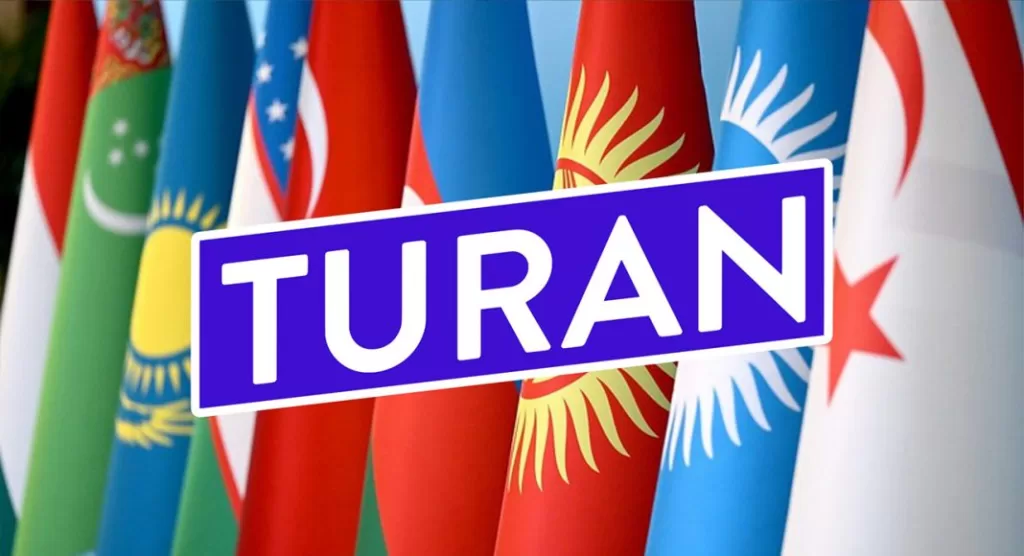
These OTS nations have made great progress towards revival or renaissance of TURAN which is referred to as a specific region in Central Asia and TURAN is perceived as denoting lands inhabited by Turkic-speaking tribes. TURAN appears next to Iran on numerous maps of the 19th century to designate a region encompassing modern Uzbekistan, Kazakhstan, Kyrgyzstan, Tajikistan, Turkmenistan and northern parts of Pakistan and Afghanistan.
This area roughly corresponds to what is called Central Asia today. Historically, TURAN was not really defined by fixed borders rather It embraces the unity of all Turks regardless where they live and to work for the common goal which is based on their culture, tradition etc for example the HAZARA community living in Pakistan and Afghanistan belong to Turkic race.
Pakistan and Central Asian Republics have many things common in their societies like the religion of Islam, having a tribal system, architecture, art, design, and common TURANIC background etc. Turkestan was also named as TURAN and its worth mentioning that the mountainous northern Pakistan was the part of Greater TURAN as depicted in historical maps. List of the areas mentioned in the map as part of TURAN are.
1. Khwarazm,
2. Bukhara with Balkh
3. Shehersebz (near Bukhara)
4. Hissar
5. Kokand
6. Durwaz
7. Karategin
8. Kunduz
9. Kafiristan
10. Chitral
11. Gilgit
12. Skardu
13. The northern steppes (Kazakhstan).
The Turan concept in modern day, we can say it currently composes of existing organization of Turkic states that is led by Türkiye. Turkmenistan and Hungary are having the observer status while Tajikistan has not yet been part of OTS states.
The objective of this OTS membership initiative is:
1. Pakistan to join the Organization of Turkish States (OTS) as member.
2. Pakistan’s participation in OTS as a member or the TURAN Corridor can bring substantial benefits, including economic growth, increased trade, enhanced geopolitical influence and improved infrastructure that can boost trade facilitation, foster economic partnerships, and attract foreign Investment.
3. Enhancing geo-economic ties and defining joint strategies for international relations and foreign policy.
4. Out-of-the-box solution in the current geo-political situation. (Pakistan has sectarian, territorial and terrorism problem coming from certain sectors and from eastern/western borders. The alliance with OTS states will give a new dimension in terms of new opportunities as far as trade and economic growth is concerned). Due to the Afghan Lar O bar, the trade opportunities are not materializing to its full potential. This member status will help overcome these challenges. Plus, Pakistan can leverage Middle Corridor, Iraq development project, Transcaspian opportunities, CPEC extension to OTS states, etc.
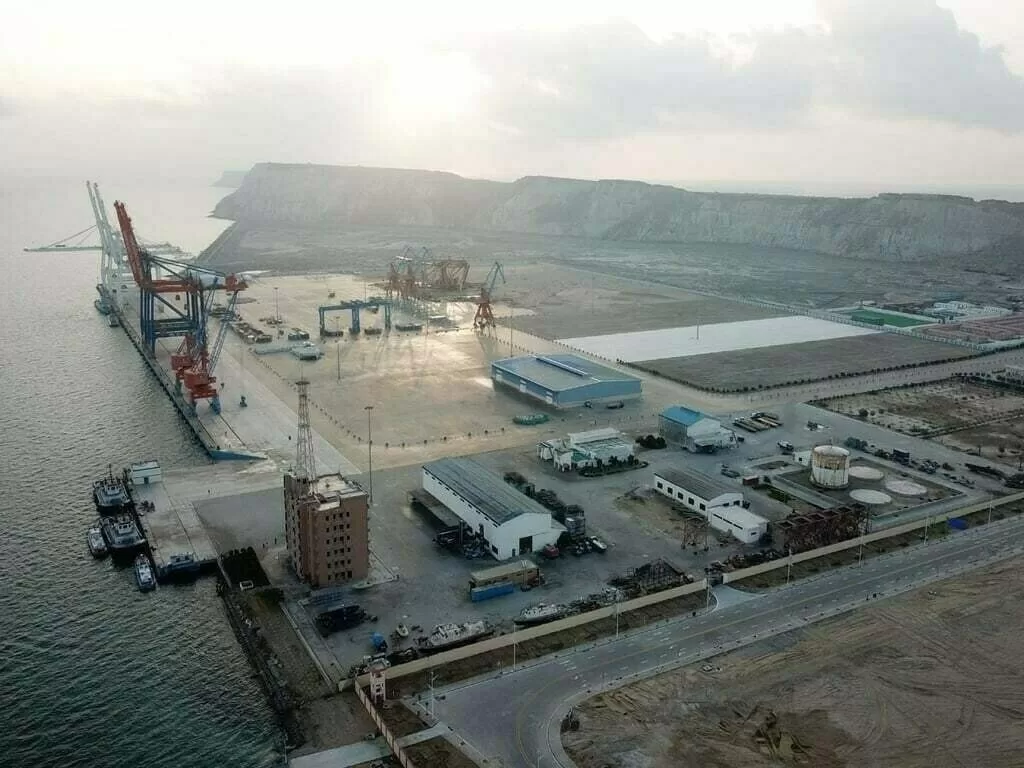
This, therefore is in the greater “National Interest” of Pakistan for our policy makers to start thinking about linking our strategic and commercial interests with the renaissance of TURAN. As a first strategic move, Pakistan must seek for an Observer Status in the organization of Turkic states followed by getting a full membership in the near future.
If Türkiye, Azerbaijan, and Pakistan along with other OTS Central Asian countries can join hands for the development of a strong alliance, many other countries will follow and that will be the beginning of the demolition of existing fault lines in case any escalation takes place in the Middle East or in our dominion of influence. Pakistan’s strategy in the Eurasian geopolitical chessboard aims to strengthen cooperation with Türkiye, Iran and Azerbaijan on the Caspian Sea to create a transit corridor that might boost Pakistani import-export and commercial trade. Pakistan wants to increase its influence and presence in the Caspian Sea, considering the outstanding geopolitical role that the region plays as an interconnector between Europe and Asia, a logistic hub, and energy market. Islamabad should discuss the possibility of strengthening cooperation with Iran and Azerbaijan to pursue this strategy, this has become even more important after strategically and tactically supporting Azerbaijan in its 44 days patriotic war for Nagorno Karabakh. The joint military industrial complex suggested above between Pakistan, Türkiye, Azerbaijan, and OTS countries will be a rock-solid achievement and will be huge regional power balancer. ECO already exists and is functional, it needs to be stretched further strategically for the rapidly changing regional geo politics.
(Col retired Maqbool Malik has contributed to this article).


